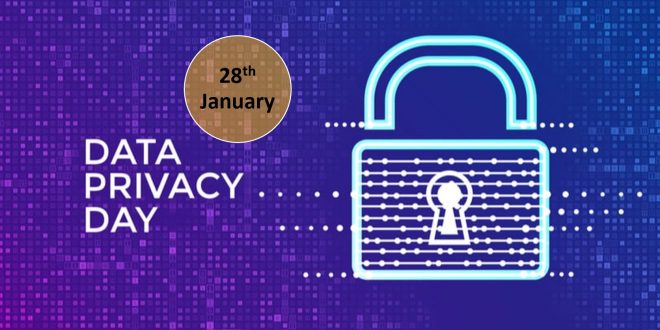Data Privacy Day, also called Data Protection Day in Europe, is a global event that happens every year on January 28. It aims to promote awareness about online privacy, data protection, and ways to protect your personal information in the digital world. It’s a good time to reflect on your online
privacy habits and take charge of your data.
By making small changes and practicing good data hygiene, you can protect yourself and empower yourself in the digital world. Taking charge of your privacy is an ongoing process, so use Data Privacy Day to become more informed and proactive about safeguarding your information.
By F2
/ Tuesday , June 24 2025
Kaspersky found a new mobile malware dubbed SparkKitty in Google Play and Apple App Store apps, targeting Android and iOS....
Read More
By F2
/ Tuesday , June 24 2025
OWASP has released its AI Testing Guide, a framework to help organizations find and fix vulnerabilities specific to AI systems....
Read More
By F2
/ Tuesday , June 24 2025
In a major milestone for the country’s digital infrastructure, Axentec PLC has officially launched Axentec Cloud, Bangladesh’s first Tier-4 cloud...
Read More
By infosecbulletin
/ Monday , June 23 2025
A hacking group reportedly linked to Russian government has been discovered using a new phishing method that bypasses two-factor authentication...
Read More
By infosecbulletin
/ Wednesday , June 18 2025
Russian cybersecurity experts discovered the first local data theft attacks using a modified version of legitimate near field communication (NFC)...
Read More
By infosecbulletin
/ Tuesday , June 17 2025
Cybersecurity researcher Jeremiah Fowler discovered an unsecured database with 170,360 records belonging to a real estate company. It contained personal...
Read More
By infosecbulletin
/ Tuesday , June 17 2025
GreyNoise found attempts to exploit CVE-2023-28771, a vulnerability in Zyxel's IKE affecting UDP port 500. The attack centers around CVE-2023-28771,...
Read More
By infosecbulletin
/ Tuesday , June 17 2025
The U.S. Cybersecurity and Infrastructure Security Agency (CISA) has recently included two high-risk vulnerabilities in its Known Exploited Vulnerabilities (KEV)...
Read More
By infosecbulletin
/ Monday , June 16 2025
SafetyDetectives’ Cybersecurity Team discovered a public post on a clear web forum in which a threat actor claimed to have...
Read More
By infosecbulletin
/ Sunday , June 15 2025
WestJet, Canada's second-largest airline, is looking into a cyberattack that has affected some internal systems during its response to the...
Read More
In 2006, the Council of Europe established the day to celebrate the anniversary of the opening for signature of Convention 108. This convention is the first international treaty on data protection that is legally binding. Since then, the day has become a global initiative observed in over 100 countries, including the United States and Canada.

DATA PRIVACY DAY 2024: SIGNIFICANCE:
Data Privacy Day is important because our personal information is constantly collected and used in our digital world. It reminds us that we have a right to privacy and need to protect our data from unauthorized access, misuse, and exploitation.
WAYS TO PROTECT YOUR PERSONALDATA:
Limit data sharing
Be mindful of what information you share online and offline, and avoid oversharing personal details.
Beware of third-party apps and permissions
Carefully review the permissions requested by apps before installing them on your devices.
Use privacy-focused browsers and search engines
Use strong, unique passwords for each online account and enable two-factor authentication wherever possible.
Beware of phishing scams
Review your privacy settings
Strengthen your passwords
Never click on suspicious links or open attachments from unknown senders.
Secure your devices
Exercise your data rights
Install antivirus software, use firewalls, and encrypt sensitive data on your computers and mobile devices.
Regularly check and adjust the privacy settings on your social media accounts, apps, and websites.
Regularly check your privacy statements
Review the privacy policies of the services you use and understand how your data is collected and used.
Know your rights under data protection laws, such as the right to access, rectify, and erase your data.
Keep yourself updated on the latest data privacy threats and best practices by following reputable sources.
 InfoSecBulletin Cybersecurity for mankind
InfoSecBulletin Cybersecurity for mankind















